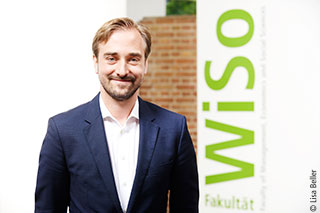Expert feedback can lead to better decisions on the prescription of antibiotics. This has now been demonstrated by scientists from the Faculty of Economic and Social Sciences and the Faculty of Medicine at the University of Cologne in an experimental study. In particular still inexperienced physicians profited from expert feedback, the team under the direction of Professor Daniel meadows of the Department of Business Administration and Health Care Management at the University to Cologne found out.
Often doctors still prescribe antibiotics today, even if it is not absolutely necessary. However, excessive use of antibiotics not only promotes the development of antibiotic resistance but can also have negative consequences for health. Particular caution is required for children who are still in development.
Using a controlled decision experiment, Professor Wiesen (Junior Coordinator of the WiSo-Key Research Profile Area Behavioral Management Science) and his colleagues investigated for the first time the causal effect of feedback on therapy decisions of individual paediatricians. The experiment consisted of three steps: At each stage, participants were asked to decide for 40 hypothetical patients whether and for how long they would prescribe antibiotics. At the beginning of the second stage, the participants were informed that they would receive expert feedback on their therapy decisions, based on recommendations from the directors of German paediatric clinics. At the end of the second stage, they actually received feedback on their 40 therapy decisions.
While the mere announcement of feedback had no significant effect on therapy decisions, the actual provision of expert feedback led to a reduction of the chosen therapy duration by about one day on average (10 percent of the originally chosen duration). The results suggest that descriptive expert feedback can be an effective tool to help paediatricians, in particular, who are still inexperienced, achieve a more appropriate prescription of antibiotics. A simple and small "nudge in the form of expert feedback could therefore lead to doctors improving their prescription behaviour. ("Nudging" is a method based on behavioural theory with the aim of influencing the behaviour of people without economic incentives).
The study was part of the interdisciplinary UoC forum "Managerial Risk Factors in Medicine", initiated by Prof. Dr. Ludwig Kuntz and supported by the Excellence Initiative of the Federal Government and the Länder.
• The original text was published in the journal "Medical Decision Making":
The Effect of Expert Feedback on Antibiotic Prescribing in Pediatrics: Experimental Evidence
Kerstin Eilermann, Katrin Halstenberg, Ludwig Kuntz, Kyriakos Martakis, Bernhard Roth, Daniel Wiesen.
Medical Decision Making: https://doi.org/10.1177/0272989X19866699
